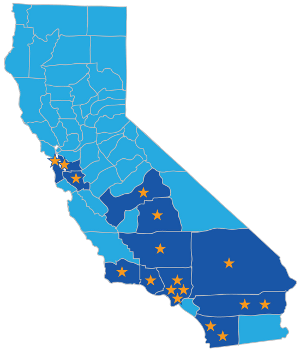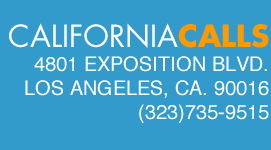California Calls is proud to announce a developing policy agenda that can raise the necessary funding to close the structural $20 billion revenue shortfall. This developing agenda was crafted through extensive research and a series of collaboration meetings over the past year with over 50 progressive organizations around the state. California Calls looked at three things 1) how much revenue is needed, 2) what types of policies would be most valuable in getting us closer to systemic reform, and 3) which policies could make up a short, medium, and long-term policy reform agenda.
California Calls is building deeper alignment among the movement for progressive tax reform in the state through a series of meetings bringing together community-based organizations, unions, foundations and service groups. The second of these sessions took place on July 19. After presentations by policy experts, with the use of cutting-edge audience response technology, participants narrowed the 23 policy initiatives under consideration down to seven consensus items that will be used to develop California Calls policy agenda. These include:
• Requiring California’s corporations to reveal their tax expenditures (as a step towards closing corporate tax loopholes);
• Raising taxes on the top income earners in the state;
• Imposing a “restitution” fee to mitigate the effects of pollution on California’s neighborhoods;
• Reforming commercial property tax laws;
• A proposal allowing for a “double majority” vote of the electorate and the legislature to increase state taxes;
• Reducing the 2/3rds vote threshold for state tax increases;
• Imposing an oil severance tax.
In August the California Calls Coordinating Committee voted to adopt these recommendations as a formal part of its short, medium, and long-term policy agenda.
The policy with the strongest support and which offers the best opportunity for a 2012 victory was raising taxes on the top income earners in the state. California Calls convened a strategy committee of 25 organizations to explore possibilities for 2012 collaboration and joined a research project with several unions and organizations to assess the viability of a Top Tier Tax fight next year.
The next Strategic Collaboration meeting will be on November 15 focused on strategic communications: how we change the story about government and taxes. A key feature of this meeting will be a discussion on how to manage the tension between long-term narrative/message development to change public consciousness and issue framing/messaging required to win now.
The California Calls policy agenda was developed through a committee of progressive tax and fiscal policy experts: Jean Ross from the California Budget Project, Lenny Goldberg from the California Tax Reform Association, Ben Tulchin from Tulchin Research, Bob Brownstein from Working Partnership USA and Sarah Zimmerman from SEIU 1000; Jennifer Ito, USC’s Program for Environmental and Regional Equity; Fred Keeley, Treasurer of Santa Cruz; Steve Levy, Stanford’s Center for Continuing Study of California; Ken Jacobs UC Berkeley Labor Center


